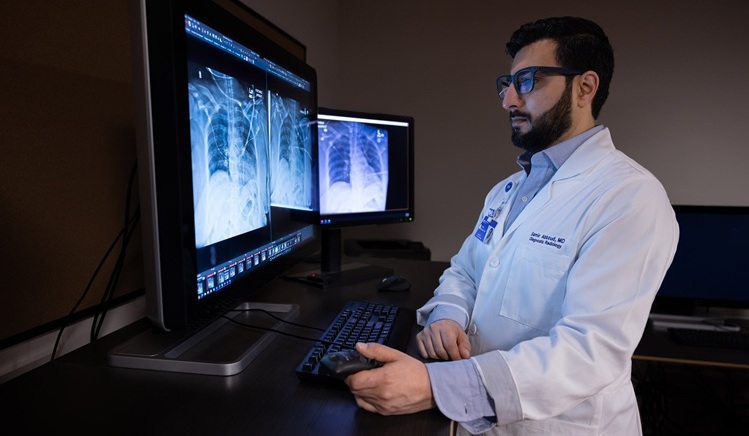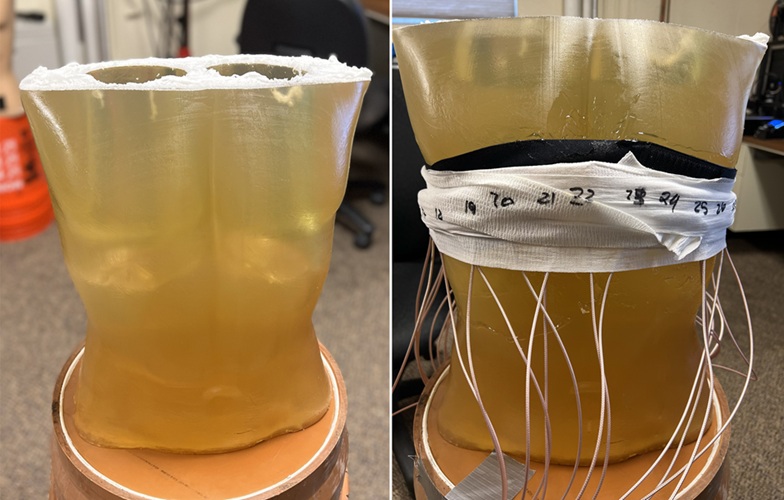E-Health Data Company Receives Accreditation in France
|
By MedImaging International staff writers Posted on 01 Jun 2010 |
The Ministry of Health and Sports in France has officially named Carestream Health (Rochester, NY, USA) as an approved host for personal health data and the first medical imaging company to receive accreditation.
The Carestream Health Managed Service portfolio fully complies with the Health Data Security and Confidentiality Reference Table published by the newly created Agency for Shared Information Systems in healthcare--Health ASIP--responsible for organizing healthcare collaboration in France. Carestream Health has rigorously demonstrated conformance against the table, one of the most stringent in Europe, underlining the effective performance of its technologies, the professionalism of its operations and the security of its processes in the arena of data hosting services.
"This approval is an important stepping stone in the development of our Carestream eHealth Managed Services in France,” said Hélène Millara-Deron, president of Carestream Health France. "It strengthens our leadership in cloud computing and as one of the first medical imaging companies to receive accreditation, puts Carestream Health at the forefront of medical data hosting with our vendor-neutral solution.”
Carestream Health's reputation for eHealth Managed Services is well established in France with a number of healthcare organizations using the company's eHealth cloud infrastructure to support a variety of workflows, from emergency teleradiology to hospital cross reading and long term archiving.
One recent recruit is Imadis, a teleradiology company based in Lyon, which was established with the aim of solving the lack of radiologist resources experienced by public hospitals at night and during weekends. The company uses the Carestream Health cloud to ensure efficient and secure data transfer from customer sites to their reading centre, with a dedicated workflow exactly tuned to their needs. Conformance to French legal requirements and best practice is a key issue.
Another is the Centre Hospitalier Régional d'Orléans, a large regional hospital representing approximately 270,000 annual exams, where Carestream Health provides secure eHealth Archive Services. "Moving to a service model enables the hospital to get rid of the issues of long term archiving and technology obsolescence management,” said Guillaume Laurent, chief information officer at the hospital. "I prefer to have my people focused on application management and understanding users' requirements, than handling long term data management issues. This requires specific expertise that we do not have. Archiving in service mode is innovative and relevant and we were also reassured by the success of regional projects [undertaken by Carestream Health] such as the National PACS Project in Scotland.”
The Carestream eHealth Managed Services (eMS) cloud has reached one billion stored images worldwide, representing more than one petabyte of data. The company currently operates from eight data centers in five countries throughout Europe and North America, with more planned to open shortly in Japan and Argentina. This vendor-neutral infrastructure virtualizes enterprise storage and provides on demand delivery of images and data to locations throughout the enterprise, regardless of where the information is physically stored or where it originated.
Related Links:
Carestream Health
The Carestream Health Managed Service portfolio fully complies with the Health Data Security and Confidentiality Reference Table published by the newly created Agency for Shared Information Systems in healthcare--Health ASIP--responsible for organizing healthcare collaboration in France. Carestream Health has rigorously demonstrated conformance against the table, one of the most stringent in Europe, underlining the effective performance of its technologies, the professionalism of its operations and the security of its processes in the arena of data hosting services.
"This approval is an important stepping stone in the development of our Carestream eHealth Managed Services in France,” said Hélène Millara-Deron, president of Carestream Health France. "It strengthens our leadership in cloud computing and as one of the first medical imaging companies to receive accreditation, puts Carestream Health at the forefront of medical data hosting with our vendor-neutral solution.”
Carestream Health's reputation for eHealth Managed Services is well established in France with a number of healthcare organizations using the company's eHealth cloud infrastructure to support a variety of workflows, from emergency teleradiology to hospital cross reading and long term archiving.
One recent recruit is Imadis, a teleradiology company based in Lyon, which was established with the aim of solving the lack of radiologist resources experienced by public hospitals at night and during weekends. The company uses the Carestream Health cloud to ensure efficient and secure data transfer from customer sites to their reading centre, with a dedicated workflow exactly tuned to their needs. Conformance to French legal requirements and best practice is a key issue.
Another is the Centre Hospitalier Régional d'Orléans, a large regional hospital representing approximately 270,000 annual exams, where Carestream Health provides secure eHealth Archive Services. "Moving to a service model enables the hospital to get rid of the issues of long term archiving and technology obsolescence management,” said Guillaume Laurent, chief information officer at the hospital. "I prefer to have my people focused on application management and understanding users' requirements, than handling long term data management issues. This requires specific expertise that we do not have. Archiving in service mode is innovative and relevant and we were also reassured by the success of regional projects [undertaken by Carestream Health] such as the National PACS Project in Scotland.”
The Carestream eHealth Managed Services (eMS) cloud has reached one billion stored images worldwide, representing more than one petabyte of data. The company currently operates from eight data centers in five countries throughout Europe and North America, with more planned to open shortly in Japan and Argentina. This vendor-neutral infrastructure virtualizes enterprise storage and provides on demand delivery of images and data to locations throughout the enterprise, regardless of where the information is physically stored or where it originated.
Related Links:
Carestream Health
Latest Industry News News
- GE HealthCare and NVIDIA Collaboration to Reimagine Diagnostic Imaging
- Patient-Specific 3D-Printed Phantoms Transform CT Imaging
- Siemens and Sectra Collaborate on Enhancing Radiology Workflows
- Bracco Diagnostics and ColoWatch Partner to Expand Availability CRC Screening Tests Using Virtual Colonoscopy
- Mindray Partners with TeleRay to Streamline Ultrasound Delivery
- Philips and Medtronic Partner on Stroke Care
- Siemens and Medtronic Enter into Global Partnership for Advancing Spine Care Imaging Technologies
- RSNA 2024 Technical Exhibits to Showcase Latest Advances in Radiology
- Bracco Collaborates with Arrayus on Microbubble-Assisted Focused Ultrasound Therapy for Pancreatic Cancer
- Innovative Collaboration to Enhance Ischemic Stroke Detection and Elevate Standards in Diagnostic Imaging
- RSNA 2024 Registration Opens
- Microsoft collaborates with Leading Academic Medical Systems to Advance AI in Medical Imaging
- GE HealthCare Acquires Intelligent Ultrasound Group’s Clinical Artificial Intelligence Business
- Bayer and Rad AI Collaborate on Expanding Use of Cutting Edge AI Radiology Operational Solutions
- Polish Med-Tech Company BrainScan to Expand Extensively into Foreign Markets
- Hologic Acquires UK-Based Breast Surgical Guidance Company Endomagnetics Ltd.
Channels
Radiography
view channel
AI Radiology Tool Identifies Life-Threatening Conditions in Milliseconds
Radiology is emerging as one of healthcare’s most pressing bottlenecks. By 2033, the U.S. could face a shortage of up to 42,000 radiologists, even as imaging volumes grow by 5% annually.... Read more
Machine Learning Algorithm Identifies Cardiovascular Risk from Routine Bone Density Scans
A new study published in the Journal of Bone and Mineral Research reveals that an automated machine learning program can predict the risk of cardiovascular events and falls or fractures by analyzing bone... Read more
AI Improves Early Detection of Interval Breast Cancers
Interval breast cancers, which occur between routine screenings, are easier to treat when detected earlier. Early detection can reduce the need for aggressive treatments and improve the chances of better outcomes.... Read more
World's Largest Class Single Crystal Diamond Radiation Detector Opens New Possibilities for Diagnostic Imaging
Diamonds possess ideal physical properties for radiation detection, such as exceptional thermal and chemical stability along with a quick response time. Made of carbon with an atomic number of six, diamonds... Read moreMRI
view channel
New MRI Technique Reveals Hidden Heart Issues
Traditional exercise stress tests conducted within an MRI machine require patients to lie flat, a position that artificially improves heart function by increasing stroke volume due to gravity-driven blood... Read more
Shorter MRI Exam Effectively Detects Cancer in Dense Breasts
Women with extremely dense breasts face a higher risk of missed breast cancer diagnoses, as dense glandular and fibrous tissue can obscure tumors on mammograms. While breast MRI is recommended for supplemental... Read moreUltrasound
view channel
New Medical Ultrasound Imaging Technique Enables ICU Bedside Monitoring
Ultrasound computed tomography (USCT) presents a safer alternative to imaging techniques like X-ray computed tomography (commonly known as CT or “CAT” scans) because it does not produce ionizing radiation.... Read more
New Incision-Free Technique Halts Growth of Debilitating Brain Lesions
Cerebral cavernous malformations (CCMs), also known as cavernomas, are abnormal clusters of blood vessels that can grow in the brain, spinal cord, or other parts of the body. While most cases remain asymptomatic,... Read moreNuclear Medicine
view channel
New Imaging Approach Could Reduce Need for Biopsies to Monitor Prostate Cancer
Prostate cancer is the second leading cause of cancer-related death among men in the United States. However, the majority of older men diagnosed with prostate cancer have slow-growing, low-risk forms of... Read more
Novel Radiolabeled Antibody Improves Diagnosis and Treatment of Solid Tumors
Interleukin-13 receptor α-2 (IL13Rα2) is a cell surface receptor commonly found in solid tumors such as glioblastoma, melanoma, and breast cancer. It is minimally expressed in normal tissues, making it... Read moreGeneral/Advanced Imaging
view channel
CT Colonography Beats Stool DNA Testing for Colon Cancer Screening
As colorectal cancer remains the second leading cause of cancer-related deaths worldwide, early detection through screening is vital to reduce advanced-stage treatments and associated costs.... Read more
First-Of-Its-Kind Wearable Device Offers Revolutionary Alternative to CT Scans
Currently, patients with conditions such as heart failure, pneumonia, or respiratory distress often require multiple imaging procedures that are intermittent, disruptive, and involve high levels of radiation.... Read more
AI-Based CT Scan Analysis Predicts Early-Stage Kidney Damage Due to Cancer Treatments
Radioligand therapy, a form of targeted nuclear medicine, has recently gained attention for its potential in treating specific types of tumors. However, one of the potential side effects of this therapy... Read moreImaging IT
view channel
New Google Cloud Medical Imaging Suite Makes Imaging Healthcare Data More Accessible
Medical imaging is a critical tool used to diagnose patients, and there are billions of medical images scanned globally each year. Imaging data accounts for about 90% of all healthcare data1 and, until... Read more













.jpeg)





